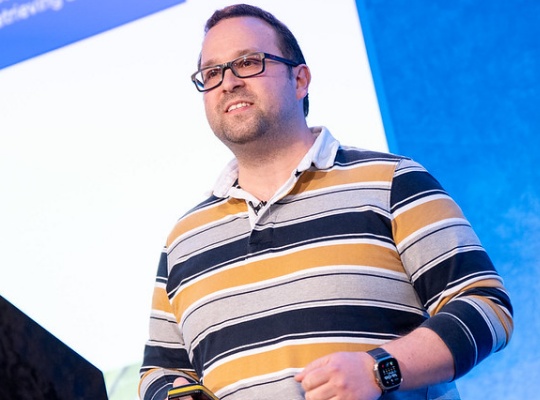Codetown
Codetown ::: a software developer's community
Did you say JUG? Java User...What?
Isn’t the answer obvious ?
Well no ! It was the question I was asking myself three years ago, even though I had been working as a consultant and Java trainer for seven years. In 2007, my ex-colleague Éric Marcoux (Oracle ACE Director) suggested I join JUG Québec (Canada). I said JUG ? Java User…What ?
Several months later, I went to JavaOne 2008 and when I saw so many developers, architects, architects, engineers from so many countries and so many amazing projects...
... and heard Matt Thompson from SUN and nearly 40 JUG Leaders talk about importance of the Java community at «Think Globaly and Act Localy» session and met Micheal Levin the co-founder of the impressive SeneJUG in West Africa, the question wasn’t «What’s a JUG?» anymore but rather «How can a sense of community and belonging be fostered among Java developper in Africa ?». For me the need of JUG-AFRICA became evident.
After talking with Java developpers across Africa, I think JUG-AFRICA could help adress questions such as :
* How to take part in international and regional events ?
* How to increase the visibility of the communities accross the word ?
* How to create link with Java communities across the word ?
Notes
Welcome to Codetown!
 Codetown is a social network. It's got blogs, forums, groups, personal pages and more! You might think of Codetown as a funky camper van with lots of compartments for your stuff and a great multimedia system, too! Best of all, Codetown has room for all of your friends.
Codetown is a social network. It's got blogs, forums, groups, personal pages and more! You might think of Codetown as a funky camper van with lots of compartments for your stuff and a great multimedia system, too! Best of all, Codetown has room for all of your friends.
Created by Michael Levin Dec 18, 2008 at 6:56pm. Last updated by Michael Levin May 4, 2018.
Looking for Jobs or Staff?
Check out the Codetown Jobs group.
InfoQ Reading List
Argo CD 3.3 Brings Safer GitOps Deletions and Smoother Day‑to‑Day Operations

The application deployment and lifecycle management tool Argo CD has reached a new milestone with the release of version 3.3, extending the capabilities of the popular GitOps continuous delivery tool while addressing several long-standing pain points for operators.
By Matt SaundersMySQL 9.6 Changes Foreign Key Constraints and Cascade Handling

MySQL is changing the way foreign key constraints and cascades are managed. Starting with MySQL 9.6, foreign key validation and cascade actions are handled by the SQL layer rather than the InnoDB storage engine. This will improve change tracking, replication accuracy, and data consistency, making MySQL more reliable for CDC pipelines, mixed-database environments, and analytics workloads.
By Renato LosioVercel Releases React Best Practices Skill with 40+ Performance Rules for AI Agents

Vercel has launched "react-best-practices," an open-source repository featuring 40+ performance optimization rules for React and Next.js apps. Tailored for AI coding agents yet valuable for developers, it categorizes rules based on impact, assisting in enhancing performance, bundle size, and architectural decisions.
By Daniel CurtisKubernetes Introduces Node Readiness Controller to Improve Pod Scheduling Reliability

The Kubernetes project recently announced a new core controller called the Node Readiness Controller, designed to enhance scheduling reliability and cluster health by making the API server’s view of node readiness more accurate.
By Craig RisiPresentation: Platforms for Secure API Connectivity With Architecture as Code

Jim Gough discusses the transition from accidental architect to API program leader, explaining how to manage the complexity of secure API connectivity. He shares the Common Architecture Language Model (CALM), a framework designed to bridge the developer-security gap. By leveraging architecture patterns, engineering leaders can move from six-month review cycles to two-hour automated deployments.
By Jim Gough
© 2026 Created by Michael Levin.
Powered by
![]()
You need to be a member of Codetown to add comments!
Join Codetown